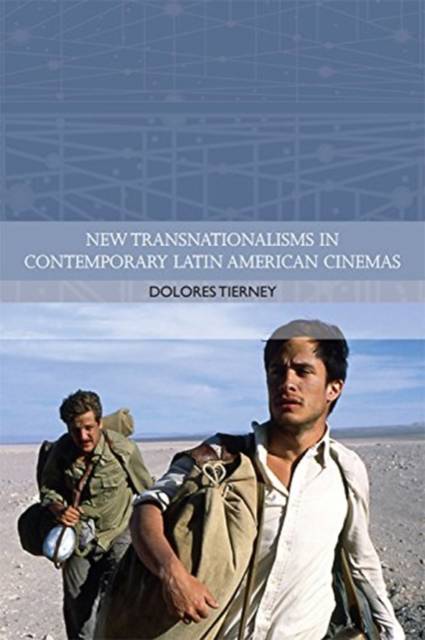
Je cadeautjes zeker op tijd in huis hebben voor de feestdagen? Kom langs in onze winkels en vind het perfecte geschenk!
- Afhalen na 1 uur in een winkel met voorraad
- Gratis thuislevering in België vanaf € 30
- Ruim aanbod met 7 miljoen producten
Je cadeautjes zeker op tijd in huis hebben voor de feestdagen? Kom langs in onze winkels en vind het perfecte geschenk!
- Afhalen na 1 uur in een winkel met voorraad
- Gratis thuislevering in België vanaf € 30
- Ruim aanbod met 7 miljoen producten
Zoeken
New Transnationalisms in Contemporary Latin American Cinemas
Dolores Tierney
€ 48,45
+ 96 punten
Uitvoering
Omschrijving
In the late 1990s and early 2000s Latin American films like Amores perros, Y tu mamá también and Cidade de Deus enjoyed an unprecedented level of critical and commercial success in the world market. Benefitting from external financial and/or creative input, these films were considered examples of transnational cinema. Through a textual analysis of six filmmakers (Alejandro González Iñárritu, Alfonso Cuarón, Guillermo del Toro, Fernando Meirelles, Walter Salles and Juan José Campanella), this book examines these transnational films and the subsequent wave of commercially successful 'deterritorialised' films by the same directors. It argues that although films produced within the structures of the United States film industry may have been commercially successful, they are not necessarily apolitical or totally divorced from key notions of national or continental identity. Bringing a new perspective to the films of Latin America's transnational auteurs, this is a major contribution towards understanding how different genres function across different cultures.
Specificaties
Betrokkenen
- Auteur(s):
- Uitgeverij:
Inhoud
- Aantal bladzijden:
- 296
- Taal:
- Engels
- Reeks:
Eigenschappen
- Productcode (EAN):
- 9781474431132
- Verschijningsdatum:
- 10/12/2019
- Uitvoering:
- Paperback
- Formaat:
- Trade paperback (VS)
- Afmetingen:
- 152 mm x 229 mm
- Gewicht:
- 453 g

Alleen bij Standaard Boekhandel
+ 96 punten op je klantenkaart van Standaard Boekhandel
Beoordelingen
We publiceren alleen reviews die voldoen aan de voorwaarden voor reviews. Bekijk onze voorwaarden voor reviews.









